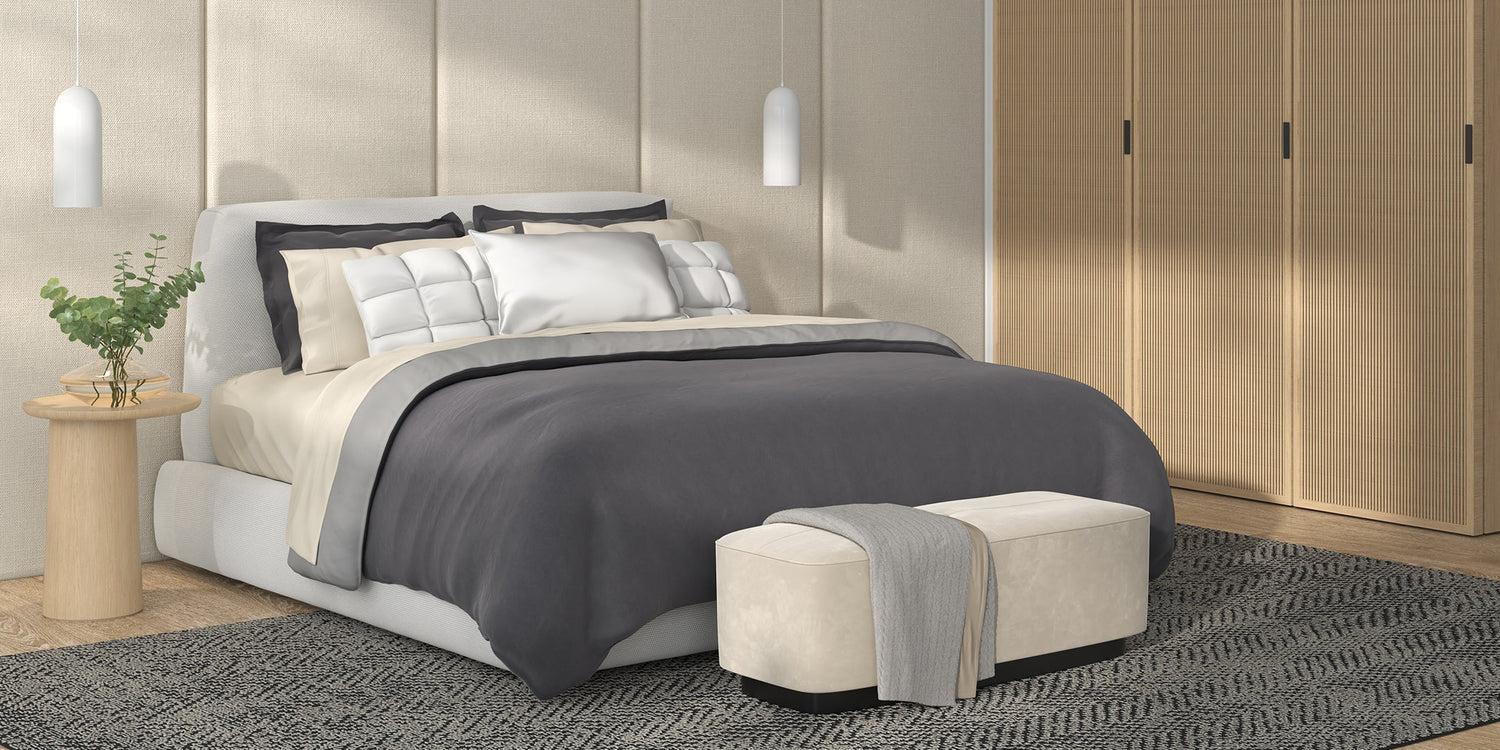It’s no secret that sleep is essential, however, many people don’t fully understand the correlation between sleep and your overall well-being. An inconsistent sleep routine not only impacts our physical health and daily performance but greatly influences our mood and mental health as well.
So today, we’re digging into sleep. We’ll explore how sleep affects our mental health, plus three easy tips for improving and maintaining sleep wellness.
A Look into the Relationship: Sleep & Mood
Sleep not only affects our physical well-being—presenting itself via dark eye circles, drowsiness, and lack of energy—but our mental state as well. Mental health and our everyday mood are directly related to a consistent sleep schedule. To better understand this concept, we need to take sleep off the back burner and shed light on the subject.
While it has been widely confirmed that there is a correlation between sleep and mental health, few professionals consider it a simple relationship. It’s a cycle: the lack of sleep can cause shifts in mental health, while these mental health shifts can also in turn further disrupt sleep.
One of the common ways to get caught in this cycle is thinking the problem will go away on its own. While certain isolated instances like staying up to finish a presentation or taking the red eye flight can cause short-term effects, the long-term effects of poor sleep quality will not fade easily.
Stress and Anxiety
Lack of sleep allows for little bumps in your daily routine to be blown out of proportion. Increased irritability, frustration, short temper, and heightened emotions can all be small tell-tale signs that you’re stressed.
Individuals struggling with consistent sleep are also found to be at risk for developing anxiety disorders, especially when left untreated. Whether you have a pre-existing mental health condition or not, it’s essential to remember that no one is totally immune to anxiety.
Depression
Beyond occasional stress, depression is the recurring negativity that carries significant weight throughout daily life. An examination of 21 different studies concluded that individuals with insomnia have twice the risk of developing depression as individuals without trouble sleeping, offering another reason to prioritize healthy sleep habits and create a regular bedtime routine that supports your lifestyle.

3 Easy Ways to Improve Sleep Wellness
To both recognize and combat the ripple effect sleep has on other aspects of our daily life, it’s important to focus on wellness and preventative care. Keep your doctor informed of any concerns you may have, celebrate your progress, and focus on the everyday changes that can improve your wellbeing.
Get Regular Check-Ups
Even if you feel perfectly healthy, routine visits with your doctor are essential to maintaining your overall health and sleep wellness.
Oftentimes, our needs change over time and it’s important to stay on top of those changes. For example, if you work with screens, prioritizing your eye health can be imperative to your sleep routine. Excessive light exposure can block production of melatonin, which regulates our sleep cycle. Your doctor can prescribe special blue-light-filtering lenses to help.
Put Yourself First
Taking the necessary steps to get more sleep and improve your mental health is no small feat, and there are many small factors that can help.
If you struggle with sleeping comfortably, try refreshing your sleep space with new bedding. The right responsive fibers, like those in Purecare CELLIANT® Recovery Sheets, can make all the difference in your ability to experience the deep, nourishing sleep you need to take on the day.
To help with common sleep issues, like insomnia and restless leg syndrome, consider purchasing a weighted blanket for nighttime relief. Weighted blankets help stimulate the comforting feeling of a hug which has been shown to help calm your heart rate and regulate your breathing, making rest and relaxation easier.
Take Small Steps Towards the Greater Goal
Facing a large problem head-on can be overwhelming and seem impossible. So, instead of looking at the big picture, break it down into smaller steps. For example, if you’re looking to get more hours of uninterrupted sleep, start by setting smaller, bite-sized goals.
A goal could be something as simple as reducing your caffeine consumption during the day or taking a few moments to practice breathing exercises known for promoting relaxation. Over time, these small steps can help keep you motivated to reach your bigger, long-term goals.

Better Wellness at Purecare
For more articles, tips, and products inspired to help you along your journey to better sleep health and wellness, follow along with us on social media and be sure to subscribe to our wellness journal.
And don’t forget—Mix, Match, and Save up to 40% off all season long when you refresh your favorite sleep wellness essentials with us at purecare.com.


